
What To Do When You Don’t Feel Like Eating During Pregnancy?
7 min readWritten by Jyoti Pachisia


If you have always associated pregnancy with cravings and loads of cream and cheese, you might be in for a shock when you get pregnant. The general image of a pregnant woman portrayed on the big and small screens is of someone who is allowed to “eat for two people” and who wants to eat all the time. A steady weight gain in a pregnant woman is cause for celebration. However, the reality is not always that rosy, thanks to the loss of appetite and nausea many pregnant women go through. What should you do when you don’t feel like eating during pregnancy?
If you are pregnant, and you do not feel like eating, it can be a major cause of concern, mainly because pregnancy is that phase of your life when good nutrition is of the utmost importance. So, what do you do? Read on to learn more.
In This Article
- Why Don’t You Feel Like Eating During Your Pregnancy?
- How Can I Get Enough Nutrition When I Do Not Feel Like Eating During Pregnancy?
- Foods to Prioritize To Meet The Nutritional Need
- Loss Of Appetite During The First Trimester Of Pregnancy
- Loss Of Appetite During The Second Trimester Of Pregnancy
- Loss Of Appetite During The Third Trimester Of Pregnancy
- What Will Happen to My Baby’s Growth If I Don’t Eat?
- FAQ’s
Why Don’t You Feel Like Eating During Your Pregnancy?
Loss of appetite and nausea are very common during the first trimester of any pregnancy. The reasons can be multiple. It can be:
- Your body’s way of ensuring no harmful food reaches the fetus due to misconceptions (1).
- Your body’s response to all the hormonal play (2) that happens in your body during pregnancy.
- The aftermath of your hypersensitivity to smell and taste (which is again a result of hormonal changes(3).
- Loss of appetite because of frequent and all-day (and night) morning sickness .
- The metallic taste seems to be sticking to your palate.
- Depression and anxiety lead to Stressful eating behaviors (4)
- Intake of rich and spicy foods, caffeine, and meal irregularities
- Medications
How Can I Get Enough Nutrition When I Do Not Feel Like Eating During Pregnancy?

Of course, you must get enough nutrients in your body to support the needs of your growing baby. Although gaining weight during the first trimester is not particularly significant, the baby must grow and develop properly in the later trimesters. Some tips to combat the issue of loss of appetite are:
1. Keep Yourself Hydrated
It is more important to ensure that you drink enough water than to meet your target calories for the day. Ensure you drink at least 2 to 3 liters of water daily (5). You can also drink fruit juice or green tea if it helps with nausea. Lemon juice is supposed to help with nausea, but for some women, it leads to acidity.
2. Keep Your Portions Small
Do not try to eat for 2 people. Remember, the second person is extremely tiny. If you try to stuff in too much, it might all come rolling back soon. Instead, try small portions of meals more frequently throughout the day.
Read: 12 Indian Foods To Avoid During Pregnancy
3. Avoid Strong Masalas
Extremely spicy food, loaded with chilies (as well as peppers) (6) and garam masala, is not great during pregnancy. Chinese food, which again has many spicy sauces, should also be avoided.
4. Eat Light Foods
Try to eat simple foods like grilled chicken, dal, yogurt, bananas, and so on. Protein and complex carbohydrates are the way to go. They will keep you fuller for longer and will also keep your blood sugar from spiking.
5. Eat Foods That Do Not Trigger Nausea
Do not worry about eating a variety of fruits and vegetables. If you can eat only bananas, then so be it. Do not force yourself to eat foods that you cannot keep down.
6. Try Foods in Different Temperature
Temperature influences appetite (7). If you don’t like it hot, try chilling it! We mean it. Some pregnant women claim that foods that they cannot stomach when hot can be enjoyed when chilled. And vice versa.
Read: Iron tablets for pregnancy
7. Ensure You Take Your Vitamins
Ensure you take your prenatal vitamins every day. This might include tablets or capsules containing folic acid, multivitamins, iron, and calcium. If you are having severe nausea, discuss with your doctor if you need any additional supplements to compensate for the nausea.
8. Do Not Stop Eating
It might feel counterproductive to eat only to puke it out later. But do not stop eating out of fear of nausea. Even if a small amount of food stays inside, that makes eating worth it. Mindful eating is very essential to minimize less nutritious foods (8).
We hope you follow the above tips and ensure good nutrition throughout your pregnancy, whether you have nausea or not. However, we know this is not easy.
Foods to Prioritize To Meet The Nutritional Need
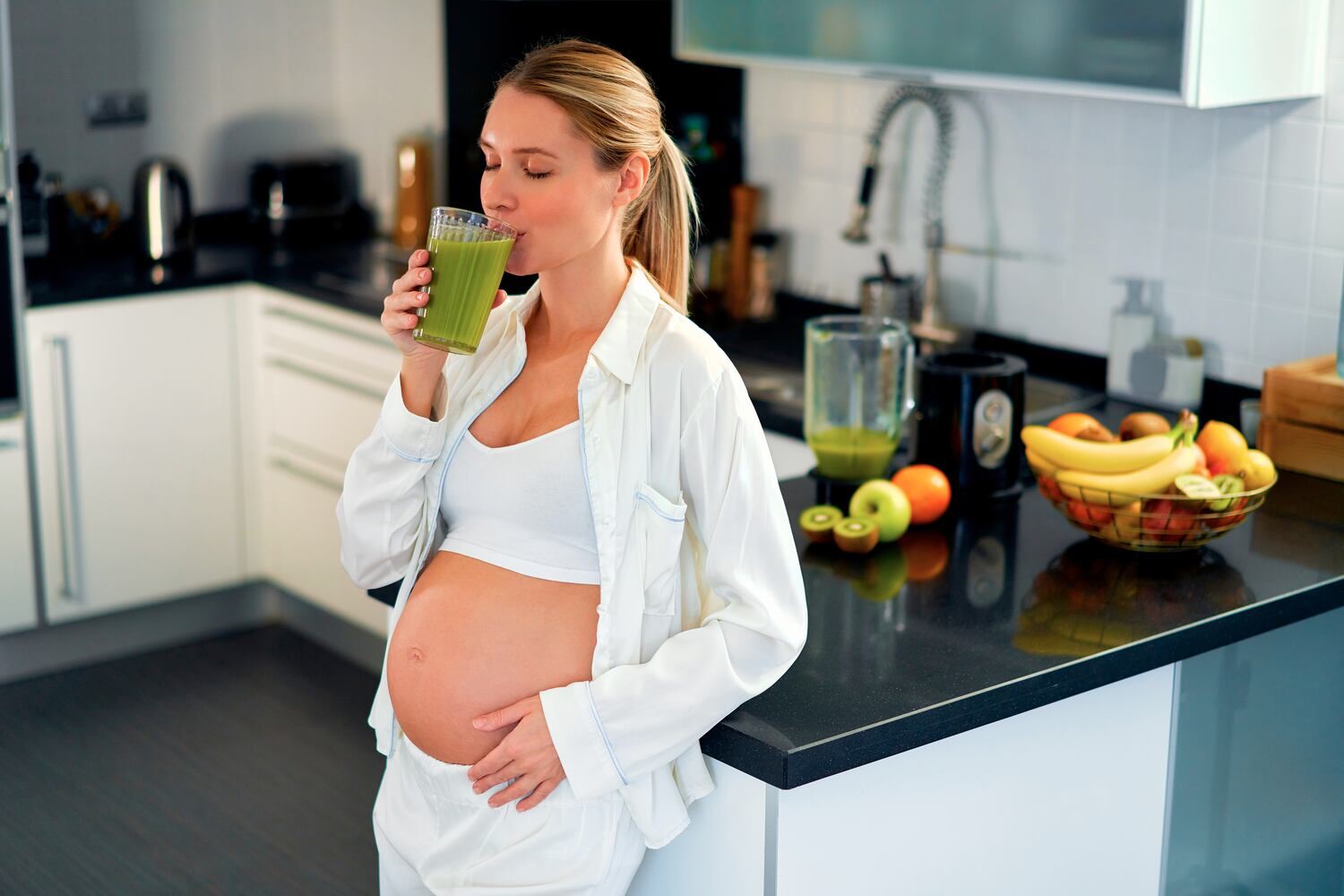
As per Recommended Dietary Allowances (2020), a pregnant woman needs additional amounts of nutrients with each trimester. These can be fulfilled by taking small, nutrient-based meals at regular intervals to avoid any discomfort. Luckily, there are some options to be prioritized.
1. Smoothies and Thick Shakes
Smoothies and thick shakes made of yogurt are big yeses. Rich in protein and calcium, yogurt increases appetite levels and promotes satiety (9) by improving gut bacteria. Mix it with fresh fruits like berries, and bananas to boost fiber and energy balance.
2. Eggs
Eggs are a good choice for something savory and filling. Being high in biological value, protein stimulates the hormones, thereby improving satiety. Whether it is poached (water poaches are more favored) or hard-boiled, it shows a stronger satiating effect compared to simple carbohydrates.
3. Nuts
Nuts like almonds, walnuts, and pistachios are the perfect choices to be prioritized. Being dense in PUFA and energy, it alters gut hormones and responses to appetite positively. Fiber present gives a sense of fullness by altering gastric emptying. Have it a handful of times, soaked or in a roasted form, and munch it.
4. Beans
This is a healthier substitute for chips or crackers. Beans are low in fat and high in fiber, which increases satiety more than animal sources. Enjoy them roasted or sprouted, or make a dip (hummus) with veggies to enjoy the flavor and nourish the body.
Loss Of Appetite During The First Trimester Of Pregnancy

It is quite common for new mothers to experience a loss of appetite during the first trimester. During the early stages of pregnancy, the body of the pregnant woman goes through many changes. During the first trimester, pregnancy hormones, an intensified sense of smell, and morning sickness contribute to a loss of appetite (10).
Some pregnant women may experience a general lack of interest in all foods or disinterest in eating as a result of losing their appetite. It’s crucial to keep in mind that various foods can cause appetite loss and that it varies from person to person. Women who lose their appetite and hunger during pregnancy may experience intense fatigue in their first trimester.
Loss Of Appetite During The Second Trimester Of Pregnancy
For many women experiencing morning sickness or food aversions during their first trimester of pregnancy, the second trimester is a welcome relief. However, some women experience nausea, vomiting, loss of appetite, and food aversions well into the second trimester.
Women lose their appetite in the second trimester for several different reasons than they do in the first. Some reasons, such as morning sickness, may carry over from the first trimester. On the other hand, new issues in the second trimester, such as heartburn and constipation, can also contribute to losing your appetite.
Loss Of Appetite During The Third Trimester Of Pregnancy
It is common for pregnant women to experience a decrease in appetite and a decrease in cravings during the third trimester. A growing fetus puts pressure on the stomach during the third trimester, which is the primary cause of loss of appetite. Simply put, there isn’t enough space for food. Indigestion, frequent heartburn, or constipation may also cause appetite loss during the third trimester.
What Will Happen to My Baby’s Growth If I Don’t Eat?
There is some room for relief here. When you are pregnant, your baby becomes your body’s priority. This means that whether you eat or not, your baby takes all that it requires from your body. Your body has a lot of stored nutrients that act as a reserve for the fetus. This will last till your nausea phase passes, and you are back at your dining table again.
So, no, your baby’s growth is not impacted by your loss of appetite. The only person who will suffer if you are unable to eat is, unfortunately, you. You will feel tired and lethargic all the time, which is why we hope you can follow the tips we mentioned in this article.
Have a safe pregnancy!
[Read: Best Energy Foods During Pregnancy]
FAQ’s
1. Should I be Concerned About My Loss of Appetite in My Final Trimester?
Yes and no. Pregnancy causes a lot of changes in your body. Just consult your doctor instead of getting worked up.
2. Why Am I Not Able to Eat Despite Being Pregnant?
Your digestive system might be out of sync. This can suppress your appetite. There is not much space left for the food to go either.
3. Should Pregnant Women Eat For “Two”?
No, it’s not necessary. Though this is a common saying, it is not advisable. You should not take it in literal sense.
4. Could Pregnancy Constipation Lead to Loss of Appetite?
Yes, it can. When you are unable to digest what you eat, you may feel full longer. Eat fiber-rich food to improve digestion.
Read Also: How To Get Proteins In Pregnancy In A Vegetarian Diet?
References
- Food taboos and related misperceptions during pregnancy in Mekelle city, Tigray, Northern Ethiopia – [https://www.ncbi.nlm.nih.gov/pmc/articles/PMC7553351/]
- Nausea, vomiting and poor appetite during pregnancy and adverse birth outcomes in rural Nepal: an observational cohort study -[https://bmcpregnancychildbirth.biomedcentral.com/articles/10.1186/s12884-020-03141-1]
- Pregnancy and olfaction: a review – [https://www.ncbi.nlm.nih.gov/pmc/articles/PMC3915141/]
- Association of stress on eating competence in mothers during pregnancy and six months postpartum – [https://bmcpregnancychildbirth.biomedcentral.com/articles/10.1186/s12884-023-06005-6]
- A Study of the Fluid Intake, Hydration Status, and Health Effects among Pregnant Women in Their Second Trimester in China: A Cross-Sectional Study – [https://www.ncbi.nlm.nih.gov/pmc/articles/PMC10096982/]
- Effects of hot spices on energy intake, appetite and sensory specific desires in humans – [https://www.sciencedirect.com/science/article/abs/pii/S0950329310000649]
- Effects of Heat on Appetite – [https://www.ncbi.nlm.nih.gov/books/NBK236229/]
- Mindful Eating and Pregnancy – [https://www.researchgate.net/publication/266614812]
- Impact of yogurt on appetite control, energy balance, and body composition – [https://academic.oup.com/nutritionreviews/article/73/suppl_1/23/1819066]
- Gustatory and olfactory function in the first trimester of pregnancy – [https://www.sciencedirect.com/science/article/abs/pii/S030121150100408

Jyoti Pachisia,M.Sc (Nutrition & Dietetics),PG Dip.(Dietetics & Applied Nutrition)
Responses (0)
Want curated content sharply tailored for your exact stage of parenting?
Related articles
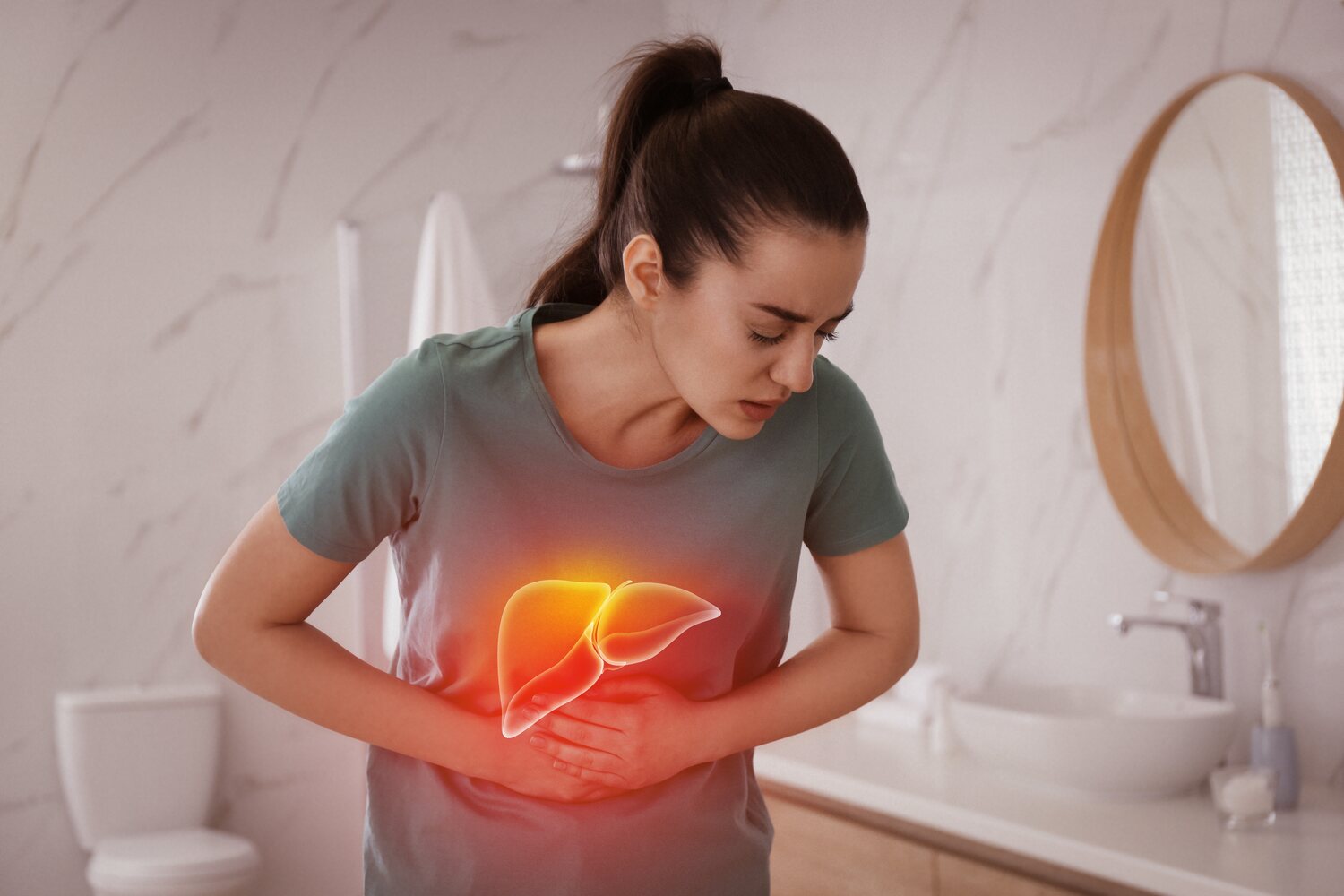
Intrahepatic Cholestasis of Pregnancy – Symptoms And Causes
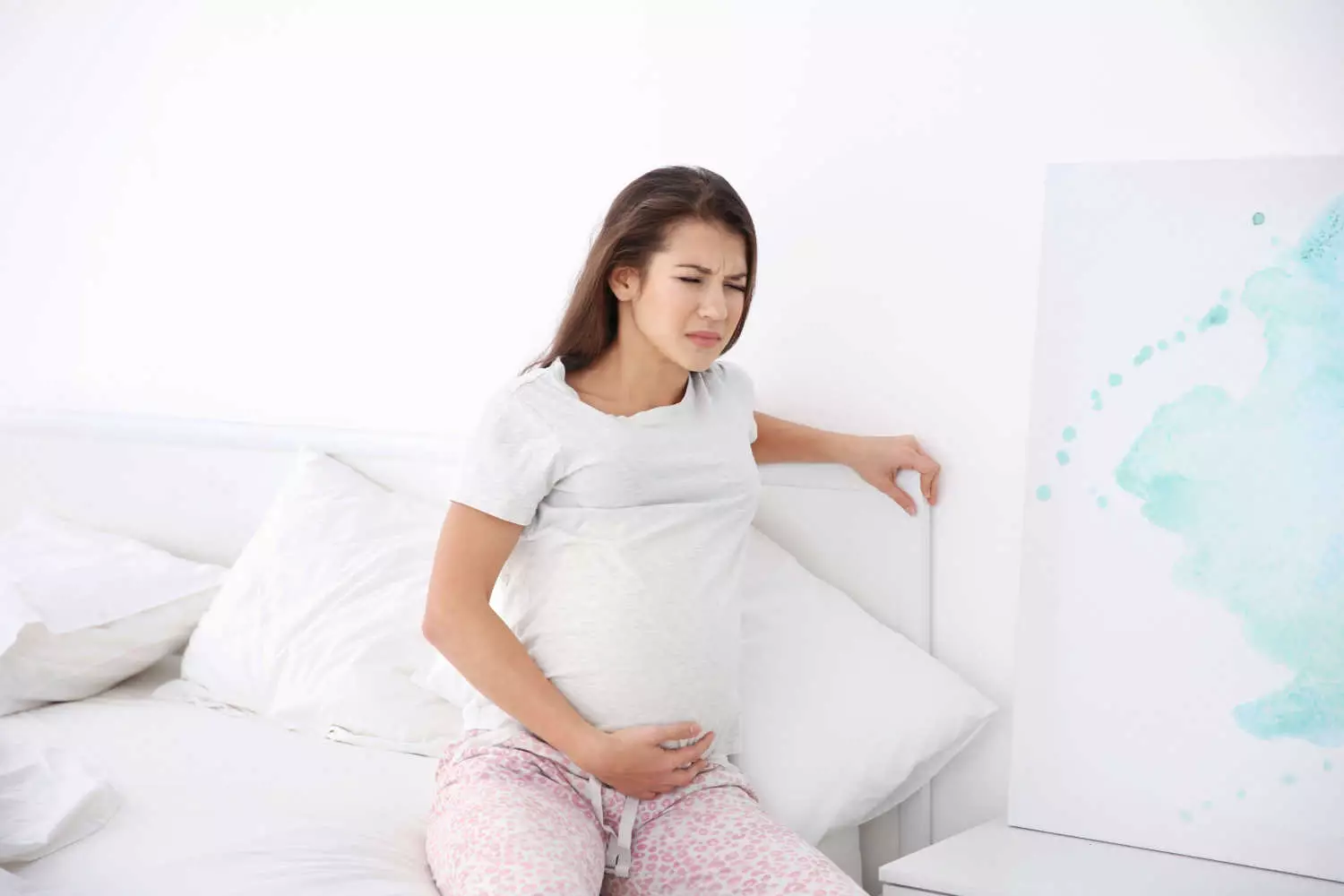
Precipitous Labor – Signs, Symptoms, and Risks
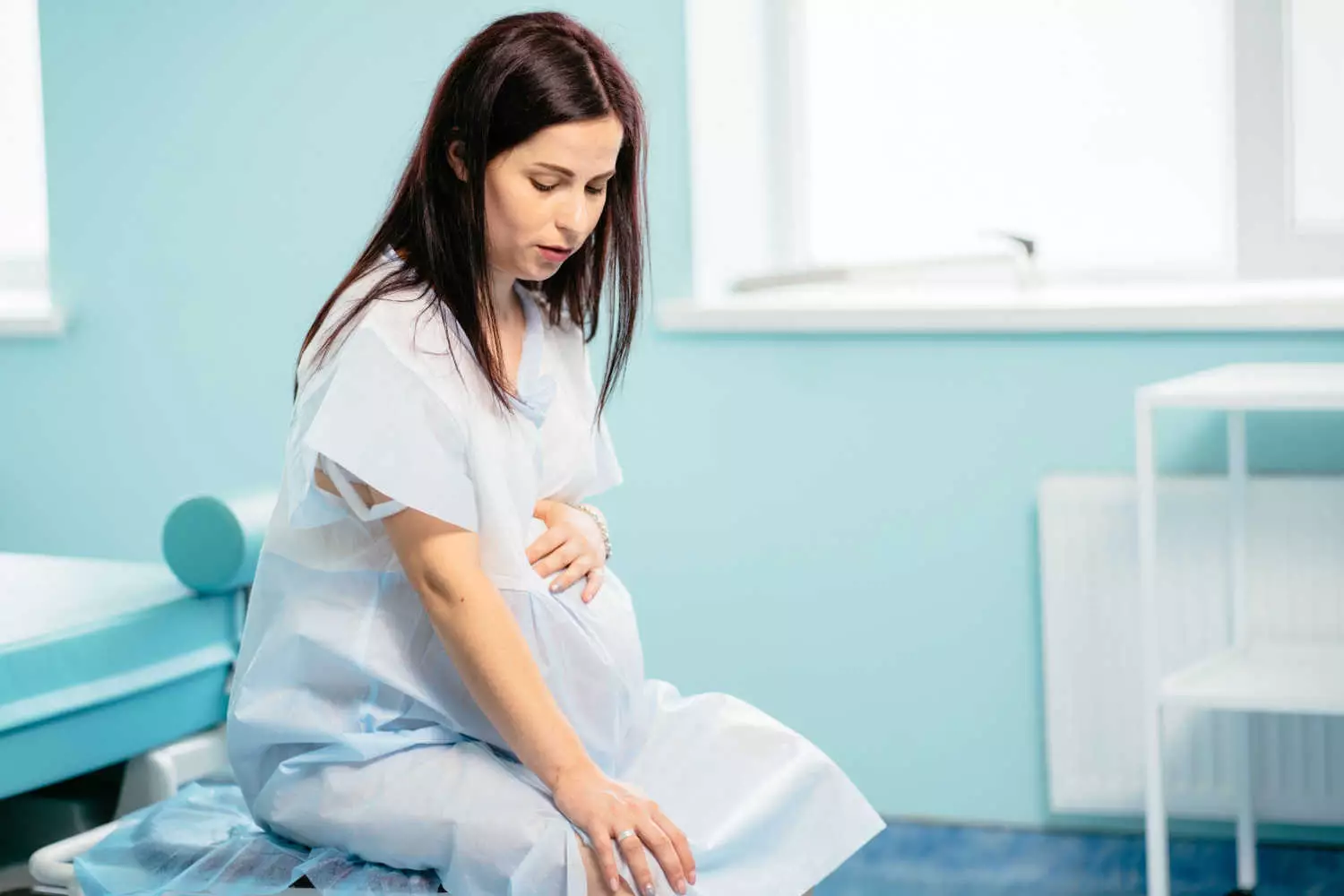
Amniotomy During Labor – Why is it Performed, Risks and Complications

Sodium Citrate During Pregnancy – Is It Safe to Take?

Planning For a Babymoon – Top Tips, Dos, and Don’ts
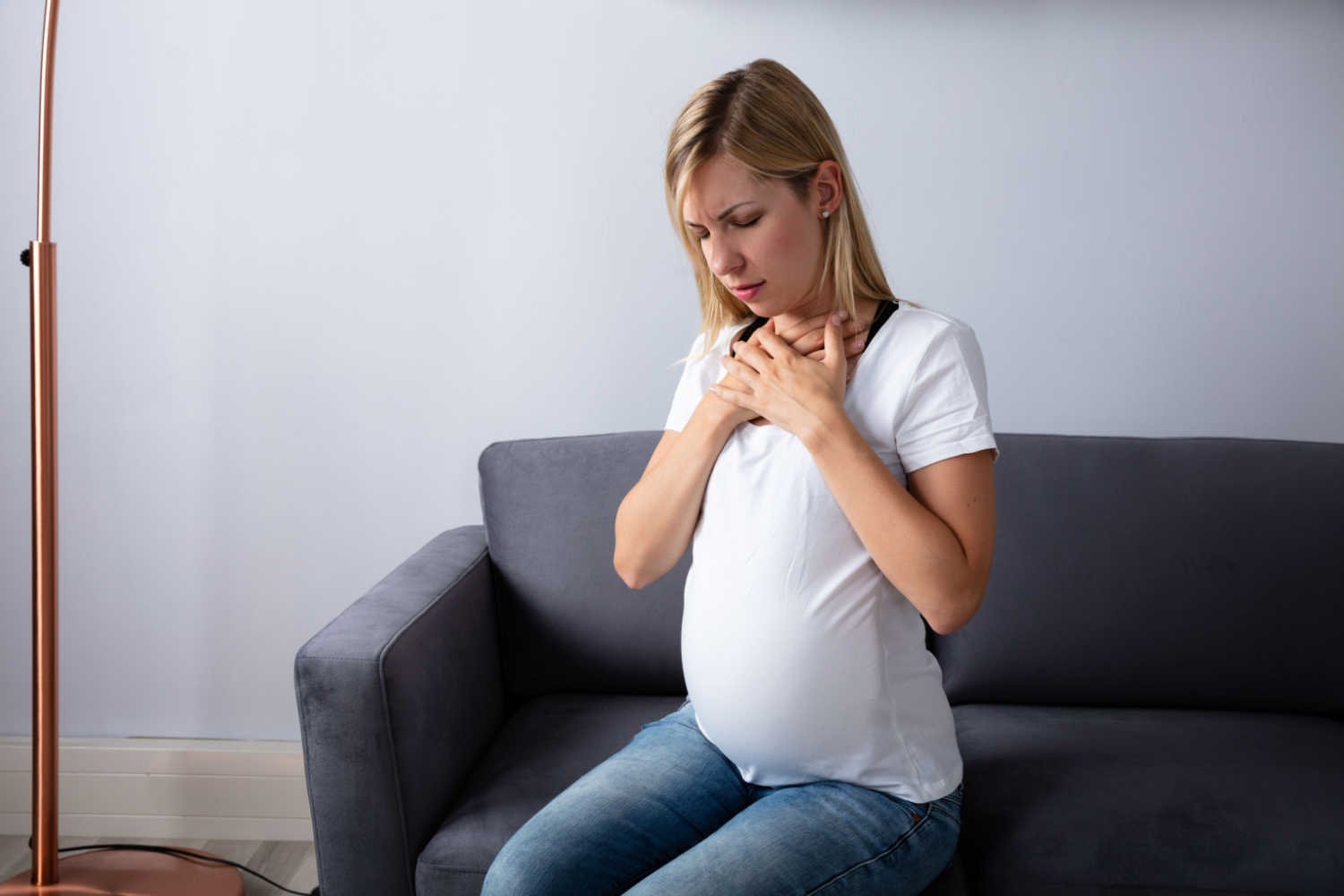
Heartburn During Pregnancy – Causes, Symptoms and Preventive Measures
Sponsored content
Discover great local businesses around you for your kids.
Get regular updates, great recommendations and other right stuff at the right time.





